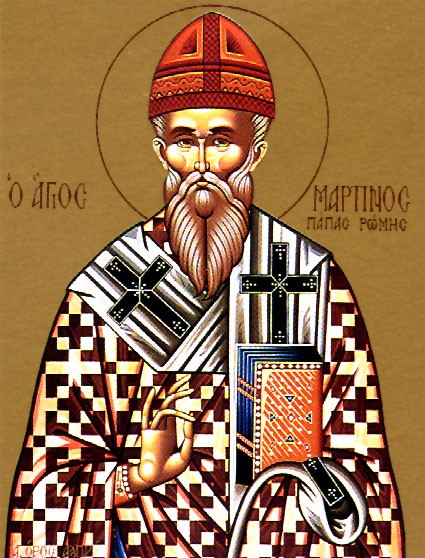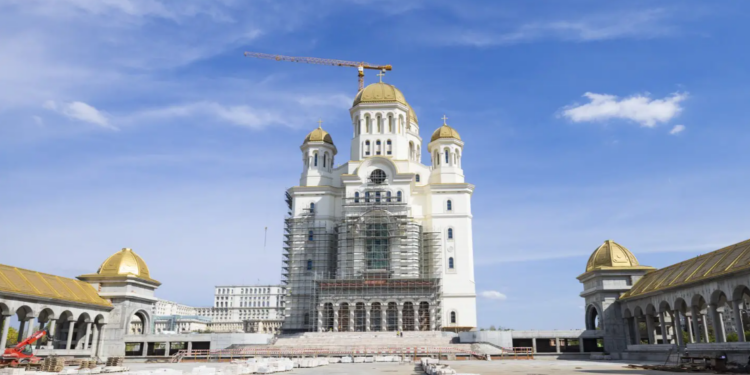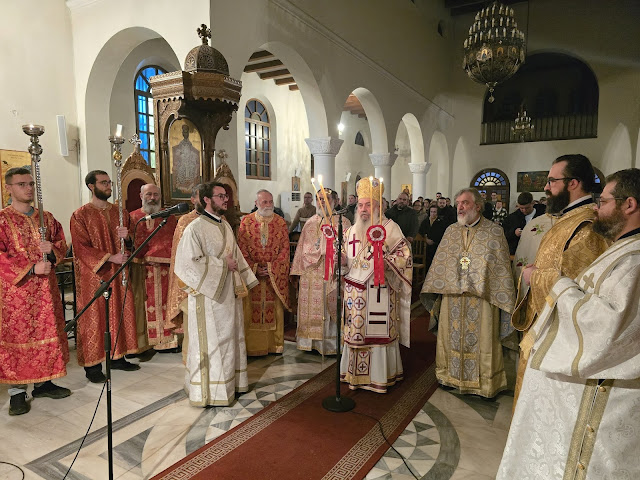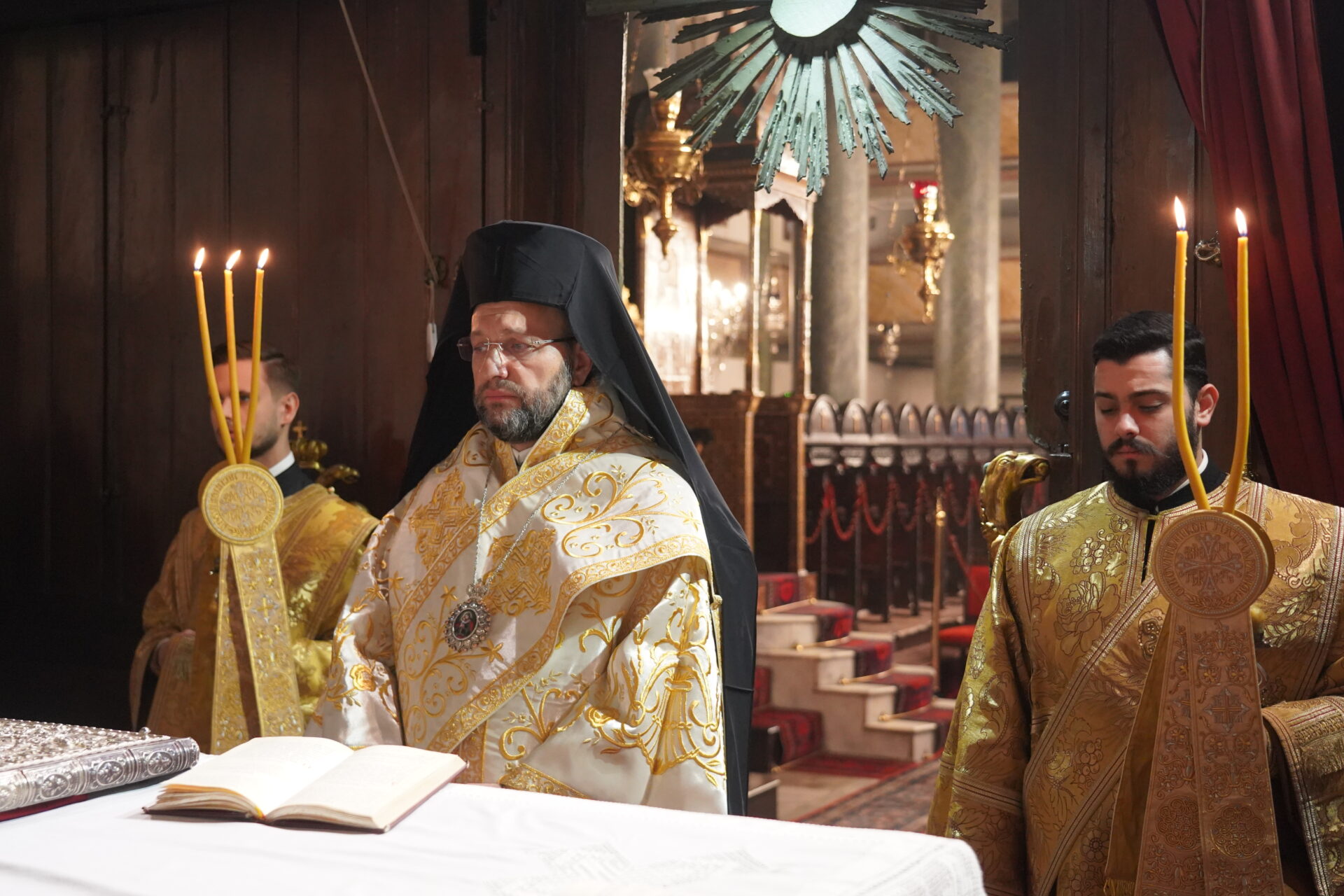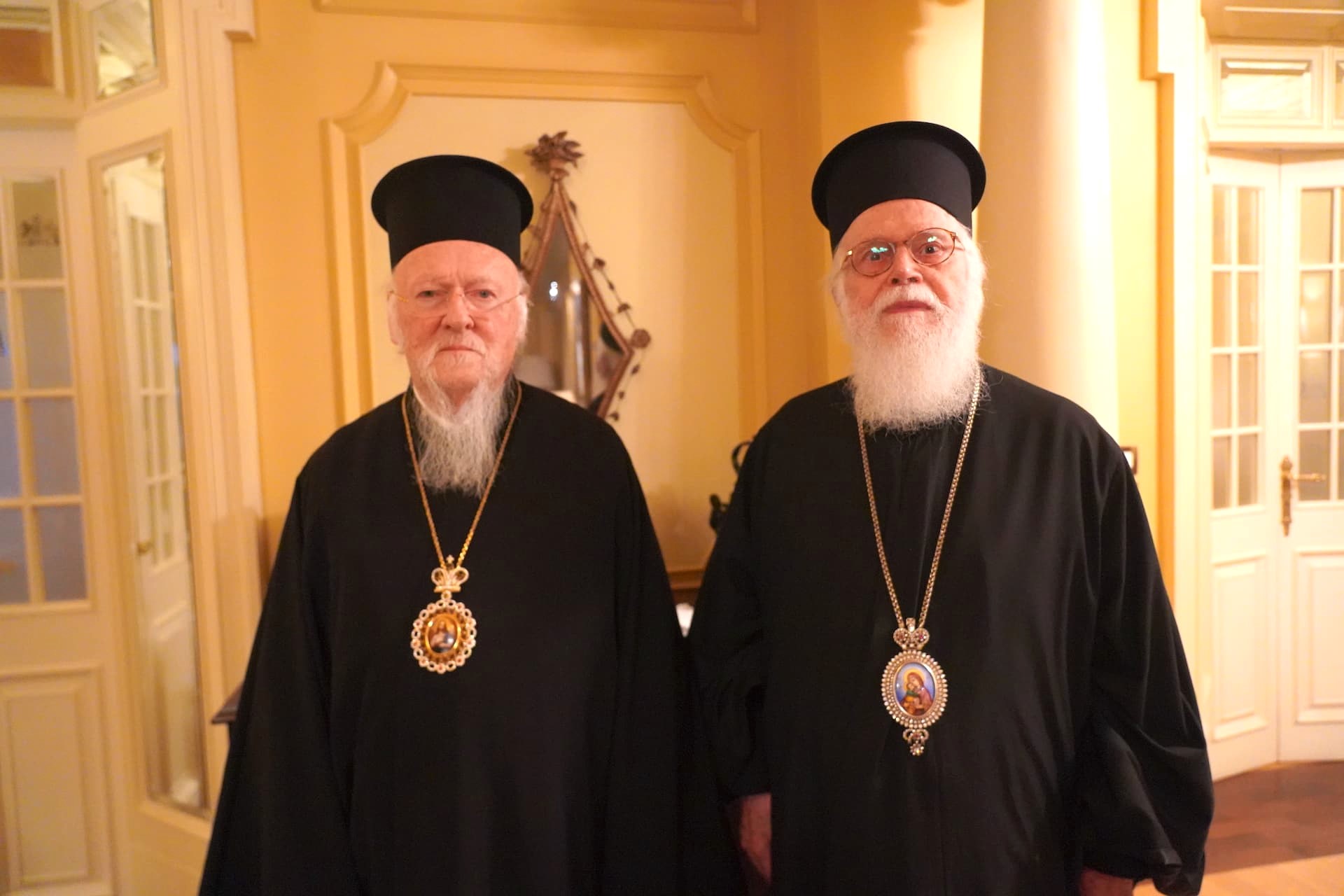Saint Martin the Confessor, Pope of Rome (13 April)


Saint Martin the Confessor, Pope of Rome, was a native of the Tuscany region of Italy. He received a fine education and entered into the clergy of the Roman Church. After the death of Pope Theodore I (642-649), Martin was chosen to succeed him.
At this time the peace of the Church was disturbed by the Monothelite heresy (the false doctrine that in Christ there is only one will, whereas in fact He has a divine, and a human will). The endless disputes of the Monothelites with the Orthodox took place in all levels of the population. Even the emperor Constans (641-668) and Patriarch Paul of Constantinople (641-654) were adherents of the Monothelite heresy. The emperor Constans II published the heretical “Pattern of Faith” (Typos), obligatory for all the population. In it all further disputes were forbidden.
The heretical “Pattern of Faith” was received at Rome in the year 649. Saint Martin, a firm supporter of Orthodoxy, convened the Lateran Council at Rome to condemn the Monothelite heresy. At the same time Saint Martin sent a letter to Patriarch Paul, persuading him to return to the Orthodox confession of faith. The enraged emperor ordered the military commander Olympius to bring Saint Martin to trial. But Olympius feared the clergy and the people of Rome who had descended upon the Council, and he sent a soldier to murder the holy hierarch. When the assassin approached Saint Martin, he was blinded. The terrified Olympius fled to Sicily and was soon killed in battle.
In 654 the emperor sent another military commander, Theodore, to Rome. He accused Saint Martin of being in secret correspondence with the enemies of the Empire, the Saracens, and of blaspheming the Most Holy Theotokos, and of uncanonically assuming the papal throne.
Despite the proofs offered by the Roman clergy and laity of Saint Martin’s innocence, the military commander Theodore with a detachment of soldiers seized Saint Martin by night and took him to Naxos, one of the Cyclades islands in the Aegean Sea. Saint Martin spent an entire year on this almost unpopulated island, suffering deprivation and abuse from the guards. Then they sent the exhausted confessor to Constantinople for trial.
They carried the sick man on a stretcher, but the judges callously ordered him to stand up and answer their questions. The soldiers propped up the saint, who was weakened by illness. False witnesses came forward slandering the saint and accusing him of treasonous relations with the Saracens. The biased judges did not even bother to hear the saint’s defense. In sorrow he said, “The Lord knows what a great kindness you would show me if you would deliver me quickly over to death.”
After such a trial they brought the saint out in tattered clothes to a jeering crowd. They shouted, “Anathema to Pope Martin!” But those who knew the holy Pope was suffering unjustly, withdrew in tears. Finally the sentence was announced: Saint Martin was to be deposed from his rank and executed. They bound the half-naked saint with chains and dragged him to prison, where they locked him up with thieves. These were more merciful to the saint than the heretics.
In the midst of all this the emperor went to the dying Patriarch Paul and told him of the trial of Saint Martin. He turned away from the emperor and said, “Woe is me! This is another reason for my judgment.” He asked that Saint Martin’s torments be stopped. The emperor again sent a notary and other persons to the saint in prison to interrogate him. The saint answered, “Even if they cripple me, I will not have relations with the Church of Constantinople while it remains in its evil doctrines.” The torturers were astonished at the confessor’s boldness, and they commuted his death sentence to exile at Cherson in the Crimea.
Saint Martin departed to the Lord, exhausted by sickness, hunger and deprivations on September 16, 655. Two other bishops, who were banished to Cherson, also died after many hardships. The Saint was buried just outside the city of Cherson, in the Blachernae church of the Most Holy Theotokos. Great crowds of people visited his tomb because of the many miracles which took place there. Later, his relics were transferred to Rome, and placed in a church dedicated to Martin of Tours (November 11). The transfer of his relics is commemorated on November 12.
The Monothelite heresy was condemned at the Sixth Ecumenical Council in 680.
In Greek usage, the holy Confessor Martin is commemorated on April 13 and on September 20, while the Slavic churches commemorate him on April 14.
Saint Martin was born in Tuscany. He had been the papal delegate at Constantinople; upon the death of Pope Theodore, Saint Martin was elected his successor. At this time the Emperor Constans II, also known as Constantine Pogonatus (reigned 641-668), was seeking support of his confession of faith called the Typos, which espoused the Monothelite heresy, that is, that there is only one will and energy in the Incarnate Son of God. But the newly-consecrated Pope not only did not accept the Typos, but convened the Lateran Council of 649 (attended by 105 of his bishops, and Saint Maximus the Confessor, who was then in Rome), which anathematized the Typos and the Monothelite heresy.
Because of this Saint Martin was seized by an imperial force in 653 and brought to Constantinople, where he was charged with sending money to the Saracens and conspiring with them, and blaspheming against the most holy Mother of God. Though innocent of these accusations, he was exiled to Cherson on the Black Sea, where, after many sufferings and privations, he received the crown of his courageous confession in the year 655.
Martin became pope on July 5, 649 A.D., at the time of the furious debates between the Orthodox and the Monothelete heretics, who held to the belief in a single will in Christ. Reigning at that time was Constans II, the grandson of Heraclius. The Patriarch of Constantinople was Paul. In order to establish peace in the Church, the emperor compiled a small volume entitled the “Typos,” which was very favorable to the heretics. Pope Martin convoked a Council of 105 bishops (in the Church of the Holy Savior in the Lateran Palace in October), which condemned this book of the emperor.
At the same time, the pope wrote a letter to Patriarch Paul, imploring him to adhere to the purity of the Orthodox Faith and to counsel the emperor to renounce this heretical sophistry. This letter angered both the emperor and the patriarch. The emperor dispatched Olympius, one of his commanders, to Rome to bring the pope to Constantinople in bonds. The commander did not dare to bind the pope, but bribed a soldier to slay him in church with a sword. When the soldier entered the church with the concealed sword, he was instantly blinded. Thus, by the providence of God, Martin escaped death.
At that time the Saracens attacked Sicily, and Olympius was ordered to Sicily, where he died. Then, through the intrigues of the heretical Patriarch Paul, the emperor dispatched Theodore, another commander, to bind the pope and bring him to Constantinople, under the accusation that he, Pope Martin, was in collaboration with the Saracens and did not honor the All-pure Mother of God. When the commander arrived in Rome and read the accusation against Pope Martin, the latter responded that this was slanderous and that he had no association with the Saracens, the adversaries of Christianity: “And as regards the All-pure Mother of God, if one does not honor her and does not confess her and does not reverence her, let him be cursed in this world and in the next.”
However, this did not alter the decision of the commander. Pope Martin was bound and brought to Constantinople, where he lay for a long time in prison, painfully ill, suffering from grief and hunger, until he was finally sentenced to exile to Cherson. Pope Martin lived for two years in exile. He died in the year 655 A.D., offering his soul to the Lord, for Whom he had suffered much. Two years prior to Pope Martin’s death, the repentant Paul died. When the emperor visited him before his death, Paul turned his face toward the wall and wept, confessing that he had greatly sinned against Pope Martin, and begged the emperor to release Martin.
Apolytikion of Martin the Confessor
Fourth Tone
O God of our Fathers, ever dealing with us according to Thy gentleness: take not Thy mercy from us, but by their entreaties guide our life in peace.
